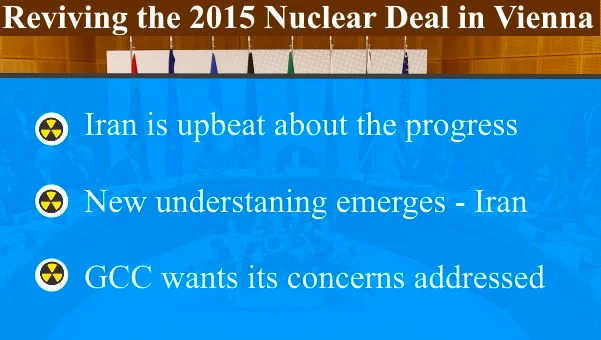There are positive signs emerging from the current
meetings between Iran and the signatories to the 2015 nuclear deal that take
place in Vienna, the Austrian capital.
According to the media reports, the delegates from
the United Kingdom, Russia, Iran, Germany, France and China are continuing with
the negotiations, while reporting the progress made to their US counterparts,
staying in a different hotel in the Austrian capital.
Iran’s top negotiator seems to be upbeat about the
progress made so far; he declared that ‘new understanding’ emerges from the
talks that they held so far – involving all sides.
Having moved the goal posts a few times, Iran and
the signatories of the 2015 nuclear deal have come a long way, slowly easing their
stubborn stance with time; Iran is leading on this front – softening its
position.
Despite the good news that comes from Vienna, some
regional obstacles still remain: for instance, Iran, mainly Shia, Persian
nation, already accused the GCC, Gulf Corporation Council, consists mainly of
Arab nations, of sabotaging the talks.
The GCC issued a statement this week that they should
be included in the ongoing discussions; they also want Iran to address their
concerns with regard to Iran’s uranium enrichment programme.
Iran branded the move ‘irresponsible and immature’. The
bone of contention between Iran and the GCC, however, did not dampen the
expectation of the real progress of the talks over the 2015 nuclear issue.
With these developments, there is a strong
possibility of reaching a new deal. When it happens, Iran will lose no time in
selling its most precious commodity, crude oil, to revive its economy, battered
by 3-year-old US sanctions and the Coronavirus pandemic.
When Iranian oil reaches the markets, there will be
a measureable effect on the supply of the commodity. Since the main global economic
engines are going to be full steam ahead, the excess supply may not make a serious
dent on the oil prices – in foreseeable future.







